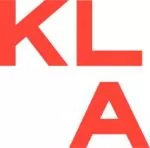- within Food, Drugs, Healthcare and Life Sciences topic(s)
Last Wednesday (04/26), the Superior Court of Justice (STJ) ruled on important tax issues with relevant effects for taxpayers:
- The exclusion of ICMS (State VAT) tax benefits from the IRPJ (Income Tax) and CSLL (Contributions on Net Profit) taxable basis.
- The levy of IRPJ and CSLL upon amounts received as interest (Selic)
The exclusion of the ICMS-ST from the Contributions to PIS and
COFINS taxable basis was also docket for trial, but the Court did
not initiated its judgment.
IRPJ/CSLL ON ICMS BENEFITS – A NEW NOVEL BEGINS
The 1st Section of the STJ analyzed, on April 26, the Special Appeals 1945110/RS and 1987158/SC, related to the Theme 1182 of Repetitive Matters, and whereby was discussed the possibility of excluding the ICMS (State VAT) benefits from the IRPJ and CSLL (Income Tax and Contributions on Net Profit) taxable basis.
The discussion is somehow related to the decision rendered in the EREsp 1.517.492 in 2017, when the STJ decided that the presumed credits of ICMS (a common type of tax benefit) granted by the States could not be taxed by the IRPJ/CSLL, as this would mean an invasion upon the States' patrimony and autonomy sphere by the Federal Union.
In this new judgment, the STJ analyzed whether the so-called "negative" benefits (i.e., those that reduce the tax owed) would follow the same understanding reached in 2017 regarding the ICMS presumed credits.
The 1ª Section of the STJ, by unanimous decision, upheld the understanding that such benefits cannot be excluded from the federal taxes basis. The Justices, however, excepted the hypotheses in which taxpayers comply with the conditions of Section 10 of Complementary Law 160/2017 and Section 30 of Law 12.973/14, which allow non-taxation if reserves of profits corresponding to benefits are created and other conditions for the use of such reserves are observed.
It is noteworthy that the STJ, in a way, validated the thesis that Complementary Law 160/2017 equated all ICMS tax benefits to investment subsidies, allowing taxpayers to choose to establish reserves to avoid taxation by IRPJ/CSLL. The Federal Revenue still argues, mainly in the administrative sphere, that only incentives granted as a stimulus for the implementation or expansion of economic enterprises would be eligible for this option.
Furthermore, during the trial, the ministers agreed that their decision would not apply to cases of immunity, which was initially listed in the Themes, because this type of exemption is not equivalent to the others, as it is granted by the Constitution itself and not by the will of the States. However, this does not mean that the STJ has validated the exclusion of the notional value of the immunity benefit from the IRPJ/CSLL base.
The full text of the decision is still pending publication and will be important to confirm the true extent of this ruling.
However, the validity of the STJ's decision will depend on confirmation by the plenary of the Supreme Federal Court (STF).
This is because, right before the STJ trial, the Justice of the Supreme Federal Court, André Mendonça, granted an injunction in the Extraordinary Appeal (RE) 835.818, which involves the possibility of excluding presumed ICMS credits from the calculation base of Contributions to PIS and COFINS (also federal contributions), determining the suspension of the judgment in the STJ, or, if the judgment had already taken place, he determined that its effects would be suspended until the case is analyzed by the STF.
The Justice stated that there is a direct relationship between the cases analyzed by the two Courts, in addition to the fact that the STJ's decision could impact the decision to be rendered by the STF in ADI (Unconstitutionality Action) 5092, which deals with the constitutionality of Complementary Law 160/2017.
Therefore, the STJ's decision will only be valid if the
plenary of the STF overturns Mendonça's injunction. If
the injunction is confirmed, the STJ's decision will have no
effect until the STF analyzes the cases mentioned above. The
injunction was included in the virtual agenda for validation or not
by the plenary of the STF to take place between May 5 and 12.
IRPJ/CSLL ON SELIC – REVISION AND CONFIRMATION OF THE STJ'S POSITION
The second relevant issue ruled by the STJ concerns to the levy of IRPJ and CSLL upon amounts received by taxpayers as interest rate (Selic) – Themes 504 and 505.
The Court had already validated the taxation on the Selic amounts received in the withdrawal of judicial deposits and in the refund of overpaid taxes.
However, later on, the Supreme Court (STF) excluded the taxation of Selic rate in the refund of overpaid taxes. Regarding Selic related to judicial deposits, the STF defined that the controversy is not constitutional, which led the STJ to reanalyze the issue.
Taxpayers argued that the thesis established by the STF should also apply in the same terms to judicial deposits.
However, the STJ adjusted its position only regarding the refund of overpaid taxes, sticking to the prior understanding that the Selic related to judicial deposits should be basis for the levy of IRPJ and CSLL.
The content of this article is intended to provide a general guide to the subject matter. Specialist advice should be sought about your specific circumstances.








